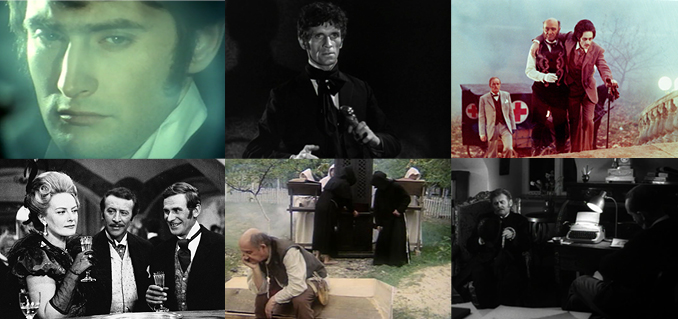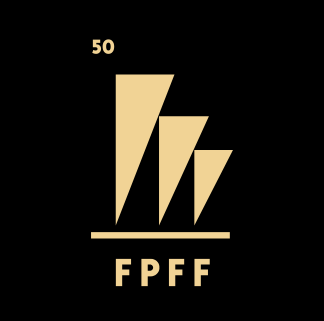“The Archives of Horror” section in the 39. GFF programme

For a second time, TVP Kultura will present short and medium length Polish genre films at the Gdynia Film Festival. Last year, the forgotten science-fiction films were the heroes of the cycle. This year, in “The Archives of Horror” review, the viewers of the 39. Gdynia Film Festival will see the Polish horrors. They will be simultaneously broadcast by TVP Kultura!
Contrary to the widely held opinion, the Polish cinema of genres was rather well represented after the II World War, while it was short films commissioned by the television and made by the career-starting directors (still before the full length cinema debut) that highly influenced its shape and the forming of the style of the industry-entering creators.
Today, the Polish cinema of horror brings rather the associations of a few full length cinema films, such as: “Lokis. Rękopis profesora Wittembacha”, “Wilczyca”, “Widziadło”, “Lubię nietoperze!”, “Medium” or “Alchemik”. However, there is more to the Polish cinema of this trend than just better or worse full length films. The TVP-produced short and medium length films about ghosts, eternal vampires, unexplained supernatural phenomena have taken on a noble patina with time, and although they can shock with excessive theatricality and cliché effects, they often defend themselves thanks to the great work of congenial film crews.
They were created by outstanding specialists of all the film professions: directors, cinematographers, costume authors, art directors, make-up specialists, lighting specialists and, of course, actors. Thanks to their joint effort and fantasy, well-thought-out and coherent works were created. In “The Archives of Horror”, the viewers will see, among others, films by Piotr Szulkin, Andrzej Żuławski, Janusz Majewski, including cinematography by the greatest Polish cinematographers such as Mieczysław Jahoda or Wiesław Zdort, and art direction designed by real artists with Tadeusz Wybult ahead.
An additional flavour of the review is the possibility of watching the most outstanding Polish actors in untypical creations: Franciszek Pieczka, Beata Tyszkiewicz, Wiesław Gołas, Barbara Brylska, Olgierd Łukaszewicz, Jerzy Turek, Kazimierz Rudzki, Andrzej Łapicki, Bronisław Pawlik and many, many others played in horrors.
First and foremost, however, those films would not exist without great literature by both the world masters of the genre, such as Edgar Allan Poe, Oscar Wilde, Iwan Turgieniew, William Collins, Prosper Mérimée, Honoré de Balzac and their Polish colleagues with the very interesting and unjustly forgotten Stafen Grabiński ahead.
“In the era of the recurrent fashion for the old cinema of horror, of admiration at the early productions of the American Universal Pictures studio by Carl Lammle Jr., or at the British Gothic Hammer Studio classics, it is worth noting that the old Polish productions do not differ much from those acknowledged positions,” says the initiator and author of the review, Tomasz Kolankiewicz from the TVP Kultura editing office of the feature and documentary film. “The films presented in “The Archives of Horror” were often made with a grain of salt; the filmmakers knew that it is only good acting and interesting directing that can cover the conventional art direction and costumes and cliché special effects. Today, the films defend themselves first and foremost with humour and a specific atmosphere, at times closer to burlesque than horror. Hence, I encourage not only horror lovers but also all those who thought that the Polish cinema would have nothing more to surprise them to jointly discover those little known pages of the Polish cinematography.”
“I really wanted for Gdynia to have something of the sort of a night’s madness, of shows taking place late at night and encouraging the viewer to meet the Polish genre cinema,” says the Artistic Director of the Gdynia Film Festival, Michał Oleszczyk. “The section, excellently prepared by Tomasz Kolankiewicz, more than fulfils that dream of mine. I think that “The Archives of Horror” will bring many surprises to the Festival viewers.”
The films of “The Archives of Horror” section presented at the evening screening shows of the 39. Gdynia Film Festival (together with TVP Kultura broadcasting days and hours)
Blok 1:
Polskie telewizyjne kino grozy w czerni i bieli CZAS: 110’42”
Pieśń triumfującej miłości, reż. Andrzej Żuławski – 26’28”
Mistrz tańca, reż. Jerzy Gruza – 28’14”
Wiktoryna, czyli czy Pan pochodzi z Beauvais?, reż. Jan Rutkiewicz 56’00”
Block 1:
Polish
black & white TV horrors RUNTIME: 110’42”
The
Story of Triumphant Love, dir. Andrzej Żuławski – 26’28”
Dance Master, dir. Jerzy Gruza – 28’14”
Victorine
or Do You Come from Beauvais, dir. Jan Rutkiewicz 56’00”
Blok 2:
Polskie telewizyjne kino grozy w kolorze CZAS: 113’59”
Przeraźliwe łoże, reż. Witold Lesiewicz – 27’47”
Oczy uroczne, reż. Piotr Szulkin – 40’42”
Jajo, reż. Konrad Szołajski
– 45’30”
Block 2:
Polish
colour TV horrors RUNTIME: 113’59”
The
Dreadful Bed, dir.
Witold Lesiewicz – 27’47”
Evil Eyes, dir. Piotr
Szulkin – 40’42”
The Egg, dir. Konrad Szołajski – 45’30”
Blok 3:
Egdar Allan Poe po polsku
CZAS: 77’46”
System, reż. Janusz Majewski
– 27’00”
Bicie serca, reż. Jan Laskowski – 25’24”
Beczka
Amontillado, reż.
Leon Jeannot – 25’22”
Block 3:
Egdar
Allan Poe in Polish RUNTIME: 77’46”
System, dir. Janusz Majewski
– 27’00”
Beating
of a Heart, dir. Jan
Laskowski – 25’24”
The Cask
of Amontillado, dir. Leon Jeannot
– 25’22”
Blok 4:
Ekranizacje prozy Stefana Grabińskiego CZAS: 120’08”
Ślepy tor, reż. Ryszard Ber
– 26’54”
Pożarowisko, reż. Ryszard Ber
– 29’02”
Dom Sary, reż. Zygmunt Lech –
64’12”
Block 4:
Screen
adaptations of Stefan Grabiński’s prose RUNTIME:
120’08”
The Stub
Track, dir. Ryszard
Ber – 26’54”
Conflagration
Site, dir. Ryszard
Ber – 29’02”
Sara’s
House, dir. Zygmunt
Lech – 64’12”


